- News
ULS begins delivery of certified glasses to its university community to observe the solar eclipse
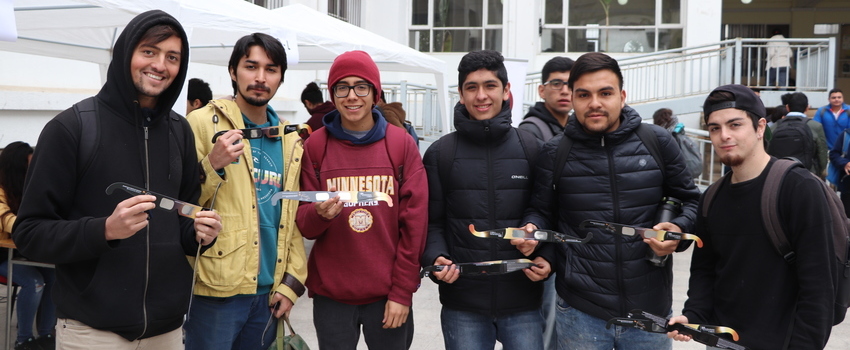
In total there are 20 thousand glasses that will be delivered free of charge to officials and students of the university, between June 24 and 28.
The University of La Serena, in its role as scientific - educational partner of the solar eclipse on July 2, has developed various activities and instances to share knowledge regarding this astronomical phenomenon with the community.
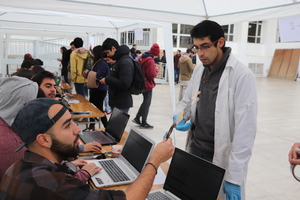 Within these instances, the university has begun the free delivery of 20 thousand certified glasses to officials and students of the ULS, a process that began on June 24 and will end on the 28th of the same month, days before the event occurs. total solar eclipse
Within these instances, the university has begun the free delivery of 20 thousand certified glasses to officials and students of the ULS, a process that began on June 24 and will end on the 28th of the same month, days before the event occurs. total solar eclipse
“As a public and state university our task is to share knowledge with as many people as possible. The total eclipse of the sun provides us with a wonderful educational opportunity to bring the community closer to the enjoyment of science in everyday life and we wanted to collaborate with useful information that allows us to prevent eye injuries due to lack of protection," stressed the Rector, Dr. Nibaldo Avilés, regarding the delivery of the glasses to the university community.
“It is something fabulous, we have a unique event that we can witness in the region and that will not be seen anywhere else in the world, and that the University encourages attending events like this with the delivery of the glasses is something spectacular, we are super grateful as students ” said Sebastián Muñoz, Interim President of the Student Federation of the University of La Serena, an organization that collaborates with this massive delivery.
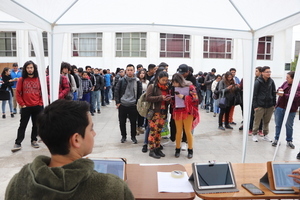 Jahel Vidaurre, student of Pedagogy in Mathematics and Computing, expressed: “it seems correct to me because I consider that the University has the duty to educate about phenomena such as the eclipse that is going to occur, and I think it is best that they be given to everyone in an free.”
Jahel Vidaurre, student of Pedagogy in Mathematics and Computing, expressed: “it seems correct to me because I consider that the University has the duty to educate about phenomena such as the eclipse that is going to occur, and I think it is best that they be given to everyone in an free.”
Along with the glasses delivered to the university community, the university has allocated 35 thousand more glasses for the regional community, which have been delivered through different instances, all with the purpose of bringing knowledge and self-care to people. , facing an event of great magnitude.
The free delivery of 2 lenses for each student is taking place from 10:00 a.m. to 17:00 p.m., in the English Courtyard of the Ignacio Domeyko Campus. While academic and non-academic officials are receiving their glasses at work offices.
Written by Tomás Rodríguez, DirCom

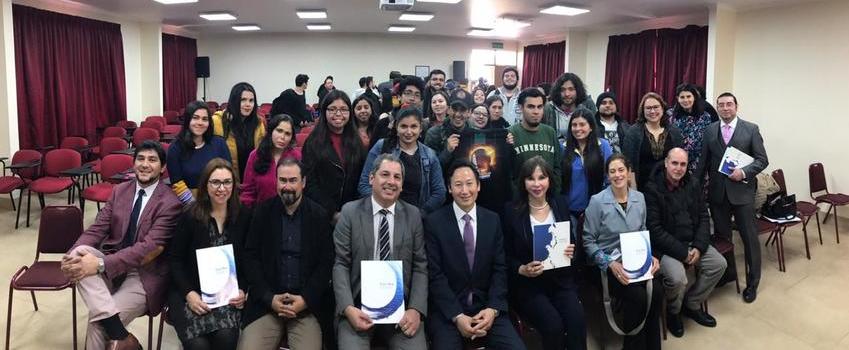
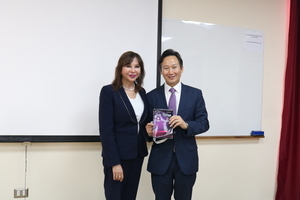 The event allowed attendees to be exposed to the political, economic and cultural background that has shaped Korea, allowing it to be promoted as a developed country with great commercial strength.
The event allowed attendees to be exposed to the political, economic and cultural background that has shaped Korea, allowing it to be promoted as a developed country with great commercial strength.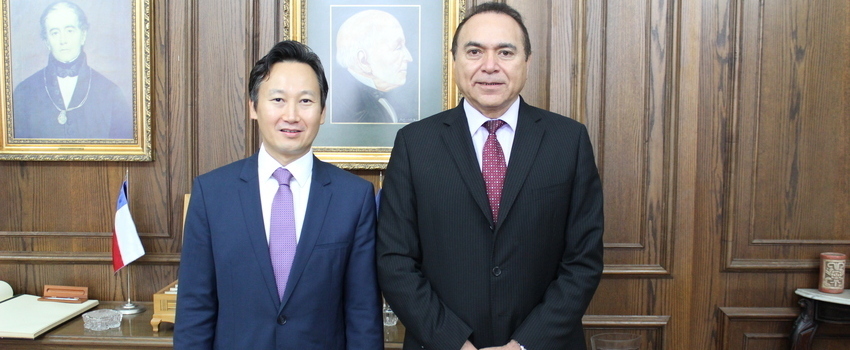
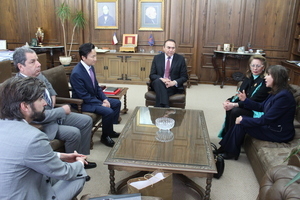 At the meeting, where they talked about Korean culture and its relationship with our country, the university authority, together with the entourage that received Ambassador (s) Yang, thanked the visit and highlighted their willingness to offer the conference "Political Context, Economic and Cultural of Korea", aimed at students and academics of the Faculty of Social and Economic Sciences.
At the meeting, where they talked about Korean culture and its relationship with our country, the university authority, together with the entourage that received Ambassador (s) Yang, thanked the visit and highlighted their willingness to offer the conference "Political Context, Economic and Cultural of Korea", aimed at students and academics of the Faculty of Social and Economic Sciences.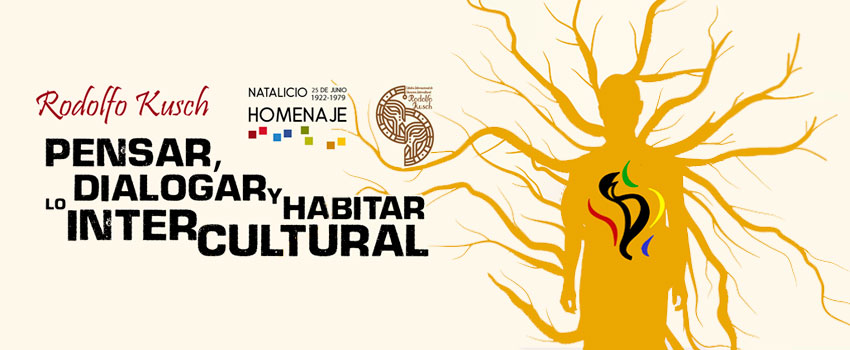
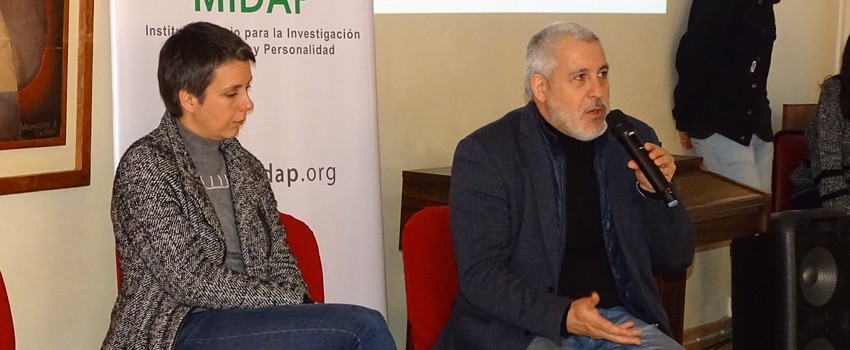
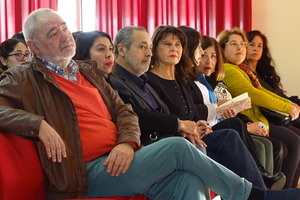 “Psychosocial risk factors are an issue that has become more visible in recent times and is something that not only calls for public health, since the issues of depression and other associated issues are also answered through education. This makes a lot of sense to us, because those who train at universities do so through graduate profiles that are constantly reviewed and have to take charge of what is happening in our environment,” stated the Coordinator of Ped's career. in Basic General Education, Dr. Héctor Bugueño.
“Psychosocial risk factors are an issue that has become more visible in recent times and is something that not only calls for public health, since the issues of depression and other associated issues are also answered through education. This makes a lot of sense to us, because those who train at universities do so through graduate profiles that are constantly reviewed and have to take charge of what is happening in our environment,” stated the Coordinator of Ped's career. in Basic General Education, Dr. Héctor Bugueño.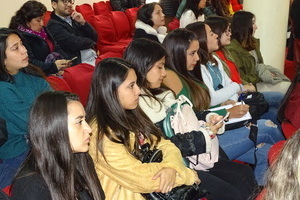 “Sadness is not depression. Depression is a universal phenomenon, which produces high levels of disability, constituting an individual and social burden. It has high mental health expenditures and is susceptible to intervention at the primary, secondary and tertiary levels. According to the national health survey in Chile, 15.8% of the general population over 18 years of age reports having experienced depressive symptoms in the last year,” explained Dr. Martínez.
“Sadness is not depression. Depression is a universal phenomenon, which produces high levels of disability, constituting an individual and social burden. It has high mental health expenditures and is susceptible to intervention at the primary, secondary and tertiary levels. According to the national health survey in Chile, 15.8% of the general population over 18 years of age reports having experienced depressive symptoms in the last year,” explained Dr. Martínez.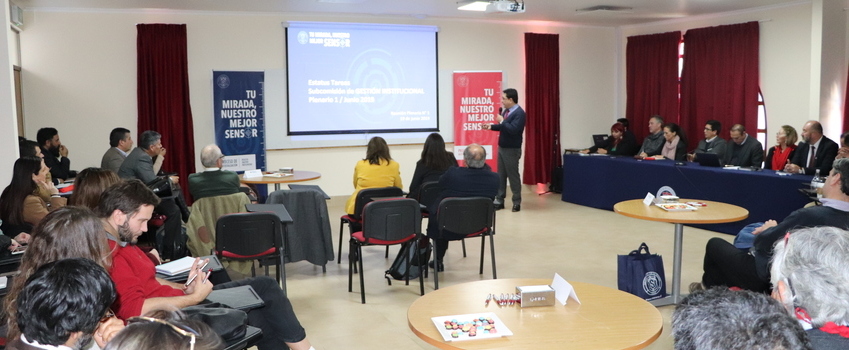
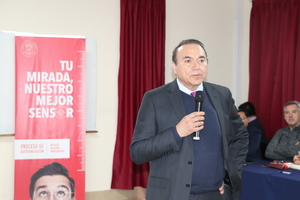 Identify best practices, complete the matrix of key informants and present the groups that will be interviewed in a common way and those that will be interviewed specifically by each subcommittee, within a collaborative work space, was the mandate that was established for this process and that materialized during this plenary session.
Identify best practices, complete the matrix of key informants and present the groups that will be interviewed in a common way and those that will be interviewed specifically by each subcommittee, within a collaborative work space, was the mandate that was established for this process and that materialized during this plenary session.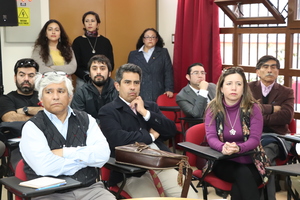 During the plenary session, each of the 4 subcommittees presented the work carried out during the weekly meetings, showing the progress requested and achieved to date, in a process characterized by collaboration and participation.
During the plenary session, each of the 4 subcommittees presented the work carried out during the weekly meetings, showing the progress requested and achieved to date, in a process characterized by collaboration and participation.